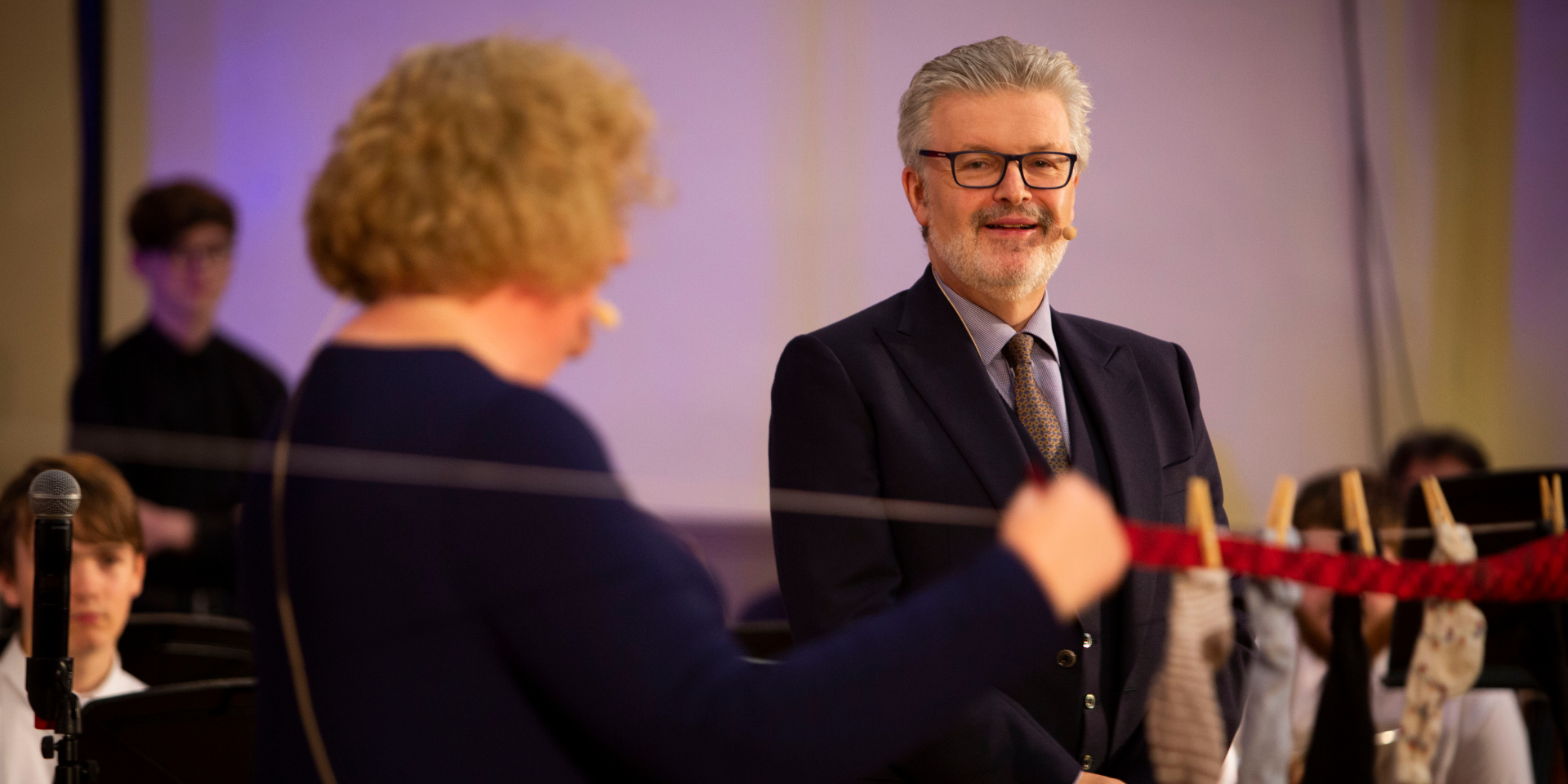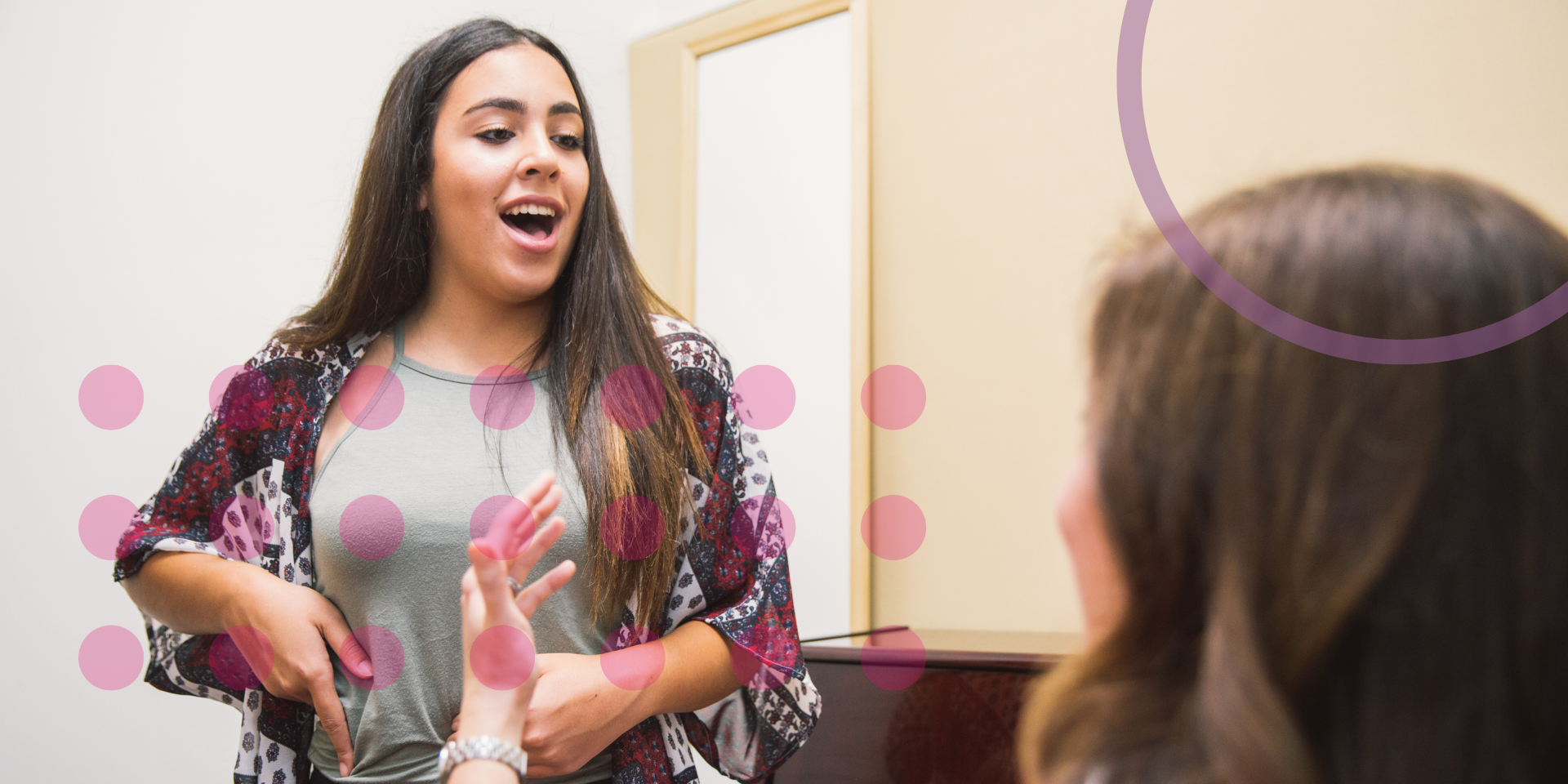
Making the case for music composition in the classroom.

BY: Sir James MacMillan
09 August 2021
Sir James MacMillan is one of the UK's most prolific composers, as well as an accomplished conductor, working with the likes of the BBC Philharmonic and Netherlands Radio Chamber Philharmonic. His connection to Cumnock in East Ayrshire, Scotland goes back to his childhood and school days, but it is a connection that lives on today through his annual Cumnock Tryst music festival. In collaboration with Trinity College London, Sir James is also making Cumnock a centre of excellence for composition.
Ahead of the launch of his new book, written in collaboration with Jennifer Martin (composer and Chief Executive of the Cumnock Tryst) and published by Trinity College London Press, Sir James shares his thoughts on the importance of composition education in our schools and how it can impact young musicians.
Supporting Teachers in the Classroom
As director of The Cumnock Tryst, I recently launched Cumnock as a centre of excellence in the learning and teaching of composition. We are now developing a programme of activity that will further support young composers still at school alongside music teachers across Scotland and beyond, through which we will share our learning and experience with those keen to develop their own teaching or composing skills in the classroom.
We want to ensure that all of our work is as relevant and as useful as possible for those teaching in the secondary music curriculum. We want to understand what makes composition a joy to teach for some, but for others, a real burden. We want to determine what has led to those difficulties or frustrations but equally, what has led to the fluency in those who find the composition element of the curriculum so rewarding to teach.
We believe that all young people can express something of themselves through composition, whether it be improvised or fully notated. Creativity is at the core of a healthy, curious mind and musical creativity can lead to all sorts of benefits for young people as they grow and explore their potential. We want to offer real skills development for teachers who want to explore their own compositional knowledge and techniques so that subsequently, the creative potential in each pupil can be maximized.
Creative Composition for the Classroom
Alongside the Tryst’s recent work in East Ayrshire’s schools, Jennifer Martin and I have been writing a new book - 'Creative Composition for the Classroom' commissioned by Trinity College London to support teachers and learners of composition. This will be launched on 1 October 2021 and it is anticipated that the content could form a central part of seminars for teachers delivered by the Tryst team.
We hope that this collaboration between us and Trinity College London will emphasise the importance of composition skills in the music curriculum and that the new book will particularly address a key audience of school age children and that it will support their teachers in building up those skills. We are particularly excited and motivated by Trinity’s emphasis on the student being able to compose and perform their own piece of music or song in a Trinity exam. This is a unique experience for the young musician and provides a truly special opportunity as part of their journey in learning and appreciating the fullness of music making.
A Lifelong Commitment
A music education, especially one which opens the student’s mind and ears to complex forms and idioms requiring focus and concentrated skill (like learning to play an instrument or singing), can take a lifetime’s commitment, both for listeners and performers as well as composers. But it is a lifetime that is full of rewards, artistically, emotionally, socially and intellectually. Active engagement with music brings benefits throughout people’s lives.
If music education is combined with the prioritising of creativity in young people, the benefits are potentially huge. A creative mind is a healthy mind, and composing music is an unparalleled joy! I know — I speak from experience! From the first day I was able to share my musical imagination, in sounds I had created myself, with my friends, teachers and family, I had begun a life of creative sharing and inspiration.
This can, and should, begin early in a young musician’s life. Yes, of course on one level it involves a solitary and determined focus, but ultimately — and this is the key to the compositional instinct — it leads to a potentially massively shared experience, not just between the composer and their audience, but between the composer and their fellow musicians for whom the music is being written. There is palpable joy in this group work.
The Transition from Composer to Listener
When the composer brings their ideas to the performing musicians, they are testing their decisions and possibilities in a public, rather than a private sphere. The ideas conceived in one’s own silent thoughts are now out there, finding a practical and social application and context. It is a seminal moment, where the aims and goals of the individual transform into the aims and goals of the group. The composer is reflecting something of our shared humanity back to their friends and colleagues, and then on to a listening public. The communication is at once personal and social. The creative journey has involved an enhanced listening and will have developed, for the young composer, analytical skills and the making of decisions which will have an impact on the piece of music itself and on its receptive public.
The act of musical composition is a huge social and spiritual moment therefore, involving many people, reaching out from the creative subject to a wide group of receptive hearers. In educational terms it is an unparalleled lesson in the development of decision-making skills and learning confidence in one’s own ideas, knowledge, experience and self-expression. Composing should be at the core of any musical education, regardless of where the young musician goes in later life, and music should be one of the basics of any person’s well-rounded education. It is my hope that this new collaboration between The Cumnock Tryst and Trinity College London, especially in our new book, will represent an important moment in the development of creative music making for our young people.
The Cumnock Tryst festival takes place in East Ayrshire from 30 September - 3 October 2021 with general booking for tickets open on 9 August 2021. Creative Composition for the Classroom will be launched at the festival on 1 October and will be available to buy via the Trinity shop.
Image credit: Stuart Armitt

-1.jpg)

Comments & Replies